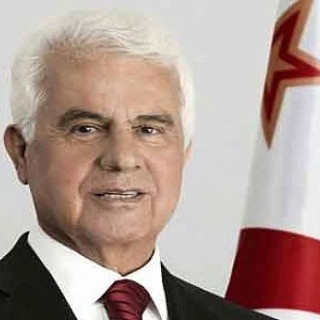
Nicosia: North Cyprus President Dervis Eroglu and Foreign Minister Ozdil Nami said that the Cyprus issue was at a critical point and urged everyone to help solve it.
“No problem can remain unresolved forever,” Eroglu said. “Therefore I would like to start negotiations as soon as possible to reach a solution at the negotiation table,” the president said as the Turkish Republic of Northern Cyprus (TRNC), recognised internationally only by Turkey, celebrates the 30th anniversary of its establishment amid pressing questions about the island’s future.
The Gulf Cooperation Council (GCC) countries and the member states of the Organisation of Islamic Cooperation (OIC), where the self-proclaimed state has an observer status, can help by taking an actively supportive role, Eroglu said. “Although some Islamic countries wanted to formally recognise TRNC, they were prevented from doing so,” the North Cypriot leader said.
“As we intensify our efforts for greater international integration, we look forward to more assistance from Islamic countries. We now have representative offices in several Arab countries,” he said.
Cyprus has been divided since 1974 when Turkish troops moved into the east Mediterranean island’s northern third to confront a Greek-inspired coup in Nicosia to unite the whole territory with Greece.
Negotiations between the Turkish and Greek sides of the island to achieve reunification have been on and off for decades, often generating frustrations and concerns.
“The Cyprus negotiations process has been stuck at the stage of preparation of a joint statement,” Eroglu said, in comments on the present situation. “It is the first time that we are facing a precondition before the start of the negotiations. First they wanted Maras. By the way, when we start negotiations one of the issues to be discussed is ‘property and territory’. Then they put forward a new precondition. Even after we said that there was no need for a joint statement, we accepted the text prepared by the UN Special Representative to Cyprus Alexander Downer. The Greek side refused the text and we have been discussing this for the last two months,” he said.
Nami, the flamboyant foreign minister, said that there existed “a golden opportunity if the two sides confirmed their commitment to past agreements.”
“All we need is to agree. Greek Cyprus wants a joint statement prior to meeting. They want to highlight their demands. We responded that we had agreements and we just need to honour them,” he added.
For Nami, an agreement will have positive effects on the region, the Middle East and Turkey’s relations with the European Union.
However, the Turkish Cypriots, feeling the pinch of isolation, said that they would not wait forever for an agreement. “Despite all difficulties created by the isolation, we are determined to work hard and create better conditions for the future of Turkish Cypriots and we have accomplished significant progress,” Eroglu said, insisting that his fellow citizens, forming a population of nearly 300,000 people, were determined to stand on their own feet economically and politically and achieve better living standards.
Nami said that his country would not “just sit idle”.
“We need to continue to our work to ensure the rights and welfare of our people while we look forward to the international community’s help to develop the TRNC socially and economically,” he said. The local economy is based mainly on revenues from tourism and higher education. At least 3,000 Arabs are enrolled at the country’s universities, officials said.
Salahi Serakinci, vice-president of the Turkish Cypriot of Chamber of Commerce, said that the country had failed to diversify its revenues. “Some 70 per cent of our GDP comes from two sectors: tourism and higher education. We should have exerted more efforts to generate a competitive private business sector,” he told reporters. However, he added that the international sanctions imposed on them prevented real international trade.












